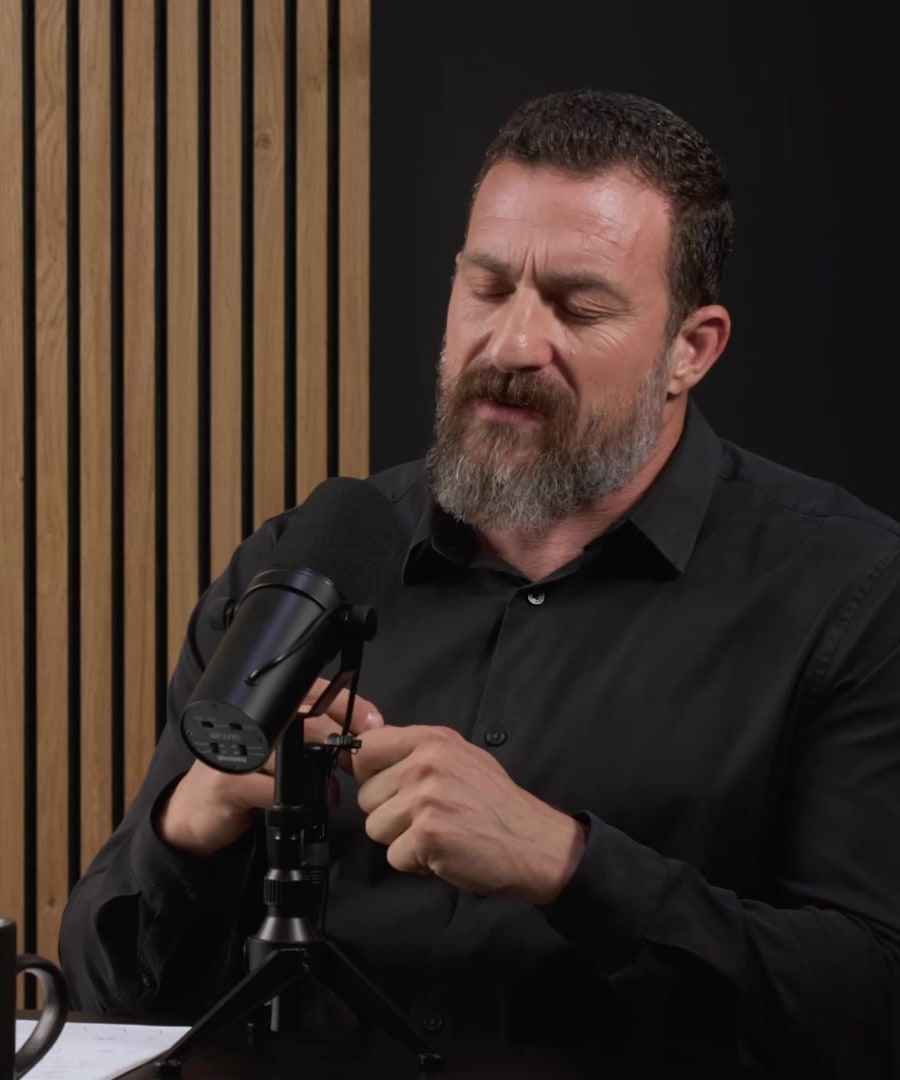hypnic jerks
Sources:
Hypnic jerks, also known as sleep starts or hypnagogic jerks, are sudden, involuntary muscle contractions that occur as a person is transitioning from wakefulness to sleep. Several experts have discussed this phenomenon and provided insights into its characteristics and possible causes:
-
and discuss how hypnic jerks presumably result from a temporary loss of proprioception, the body's ability to sense its position in space. As you drift off into sleep, proprioception can degrade before full loss of consciousness, triggering the brain to interpret the sensation as falling, thus causing a jerking motion to "catch" yourself 1 2.
-
shares his personal experience with hypnic jerks during a carnivore diet. He indicates that these jerks can be symptomatic of an electrolyte imbalance, particularly magnesium deficiency, which he resolved by adjusting his diet and balancing his electrolytes 3.
-
Another mention by from the podcast "Maintenance Phase" describes hypnic jerks as a common part of the human experience, equating it to the last bits of the day's energy leaving the body, although recognizing this as an unfounded theory 4.
These insights cover the sensory and physiological aspects of hypnic jerks, illustrating a mix of scientific hypothesis and personal anecdotes.
RELATED QUESTIONS-
How to resolve electrolyte imbalances and magnesium deficiency to stop hypnic jerks.
Sources:
To address electrolyte imbalances and magnesium deficiency, especially in the context of addressing hypnic jerks, several experts offer useful advice on dietary and lifestyle adjustments:
Electrolyte Balance
-
Dietary Adjustments:
- Magnesium-Rich Foods: Include dark green leafy vegetables (spinach, swiss chard), nuts (almonds, cashews), seeds (pumpkin, chia), avocados, and cold-water fish (salmon, mackerel) 1 2.
- Potassium Sources: Consume a variety of vegetables and fruits to ensure sufficient potassium, which works closely with sodium in maintaining electrolyte balance 3 4.
-
Supplementation:
- Magnesium Forms: Consider magnesium threonate or bisglycinate for improving sleep and reducing hypnic jerks, as they are known to cross the blood-brain barrier effectively 4 2.
- Sodium and Potassium Supplements: Use balanced electrolyte supplements like LMNT, which provide a specific ratio of sodium, potassium, and magnesium 4.
Lifestyle Adjustments
-
Reducing Lifestyle Factors that Deplete Magnesium:
-
Hydration:
Symptom Identification and Expert Consultation
- Hypnic Jerks: Persistent hypnic jerks may indicate deeper electrolyte imbalances or magnesium deficiencies. Consult with healthcare providers for red cell magnesium testing, which is more accurate than standard blood tests for magnesium levels 1.
- Signs of Magnesium Deficiency: Muscle cramps, twitching, constipation, and palpitations are common signs. Increasing magnesium intake can alleviate these symptoms 5 6.
Making these adjustments can help manage and potentially resolve hypnic jerks by ensuring adequate magnesium and overall electrolyte balance. Always consult with a healthcare provider before starting any new supplementation regimen.
RELATED QUESTIONS-






